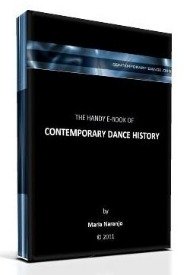How to nurse and nurture the memory skill in dance?
by Parsi
(Bogotá, Colombia)
Dear Maria,
One of the most important tasks in dance class is learning at once what teacher instructs, then incorporate elements of technique and performance.
In my case I’ve spent years training. I really want to enjoy the variations in center and step forward, either because there’s plenty of space nearer the director. And still my memory is inaccurate, is my inability laziness, fear, how can I name it?
I’m blocked, I feel I expend a great deal of energy ~visibly and not visibly~ I spend energy on self-hatred about easy tombé pas de bourrée that I’m incapable to link with the whole variation, in regret about at late age that I started to dance, on grief about my Latin American roots, and on jealousy about youngsters. I need help, after ten years studying I’m self-doubt. How can I draw clearer and neater what dance teacher requires for a different and daily centre work?
Most frequently, it is abandonment, anxiety what I experience in an audition, which in the bottom is the same principle in class to learn and follow the technique-based drills. Any suggestions?
In other words, How to nurse and nurture the memory skill?
Warm regards,
Parsi
Fisrt reply:
Dear Parsi,
All dancers have different skills, and some are very fast learners and others go slower. This is a common situation, so don’t get discouraged if it takes you
You mention a lot of emotional causes in your question: self-hatred, regret, grief, jealousy, self-doubt, abandonment, anxiety… This are all psychological causes. So, I believe that one of your tasks is to study about these emotions and to study your own mind. Why do you feel all this? The goal would be to identify the roots of these emotions in a rational way. You can try this by the means of modern psychology. Another option is Buddhist psychology. As a personal opinion, I’d tell you that Buddhists are THE MASTERS OF THE MASTERS regarding the psychology of emotions.
From another point of view, I would say that all dancers do not have to be super-fast learners to have a dancing career. In many cases, those dancers who learn slow are the best improvisers. And when it comes to creative projects, there’s always the option to work at your own rhythm. I’m not saying that it is not necessary to develop the memory skill in dance. I know that it is required in many contexts. However, you can always find another strength in you as a dancer and make the most and best out of it.
I hope this gives you a clue to move on.
Warm regards,
Maria
pd: By the way... I’m settled in Medellín. We may stumble upon each other one day…
The handy e-book of CONTEMPORARY DANCE HISTORY:
The Dance Thinker is our occasional E-zine. Fill in the form below to receive it for free and join us.
Read:
"The Dance Thinker"
BACK ISSUES
Post contemporary dance announcements (workshops, auditions, performances, meetings and important news... it is free.)



